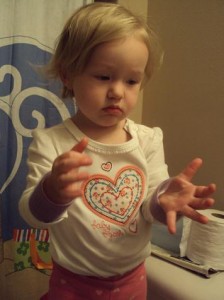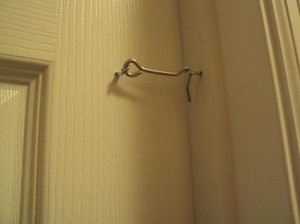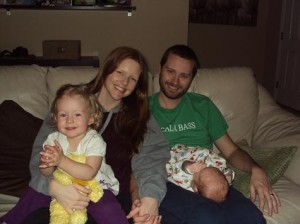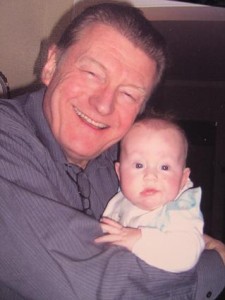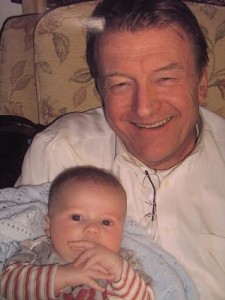Proverbial wisdom says we use only 10% of our brain power. Spending two weeks living with a precocious toddler leads me to believe we’re born with 100% capacity but then dwindle to 10% by adulthood. When we reach 64 (my age), we’re clinging to percentages in the single digits.
Skylar Grace, my little 19 month old granddaughter, astounds me with her thinking skills. She memorizes words with one repetition, has learned the nuances of our slang, mimics voice inflection and puts grammatical sentences together with ease. And that’s just her language aptitude.
This little person has the gumption to try anything and takes logical risks: “Skylar do it. Skylar taste it. Skylar touch it.”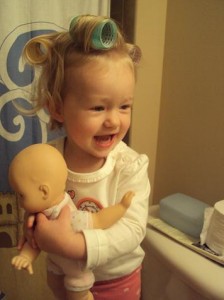
She summons up stamina adults wish they had as she tries repeatedly to conquer new skills, practicing each one a hundred times over. She never gives up and doesn’t give in. Winston Churchill said, “Courage is going from failure to failure without losing enthusiasm.” That’s a one year old.
Our little girl never runs out of fresh ideas. Her think tank seems always full. For example, this morning when she was helping me put rollers in my hair, I helped her put a few in hers. But she had a better idea. “Purple bracelets,” she said, holding up both arms with rollers she’d slipped over them. She’s the kind of employee Steve Jobs would want in his corner office.
What happens to those seemingly unlimited resources as we age? Will Skylar have been whittled down to 10% brain power by the time she’s a grown up? And the more important question, what was God’s original intention?
My guess is that Adam and Eve were at 100% thinking capacity when they were newly created in God’s perfect world. What a massive descent they made in one day, from 100% to 10%, as Satan had his way with them. After he cleverly convinced them to compete with God and thus commit the first sin, the horror of what they’d just done dawned immediately, probably as they were still chewing the forbidden fruit.
As they scurried about trying to think how to cover themselves, it was evident their brain power had already undergone a serious shrinking. Sewing leaves together? Not such a brainy idea. Too bad they didn’t have a one year old to help them think outside the box.
When God finally connected with them, he had a much better idea: animal hides. Adam and Eve probably watched him kill the animals to get the skins with which he covered them. Crouching in the bushes witnessing all that violence and feeling nothing but loss, what were they thinking? A lot less than 100%.
Ever since then, our brain percentages have not been good. Skylar and every other one year old are reminders of how mentally sharp we used to be. James Dobson said something like this: “Give me one hundred two year olds, and I’ll take over the world.” If I was him, I’d go for one year olds instead, before they lost even one percentage point.
”The mind of sinful man is death, but the mind controlled by the Spirit is life and peace.” (Romans 8:6)

